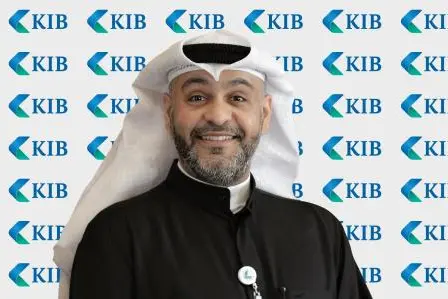PHOTO
Kuwait: Kuwait International Bank (KIB) recently organized a one-month sign language training program for its employees, conducted and held at the Australian College of Kuwait (ACK). The program is the latest effort in the Bank’s ongoing training and development program, which seeks to upskill staff across all areas of the Bank’s operations, as well as provide specialized professional development opportunities to its team.
A key aim of the training program was to help bridge one of the most critical gaps that affect the deaf community in Kuwait –- communicating with service professionals. The course was conducted by Dr. Najat Mukhtar, a professional trainer at ACK. KIB staff were taken through the basics of how to interact, assist and initiate a conversation with a deaf customer using basic sign language. The program addressed a number of key topics such as: learning the names of areas with bank branches; being able to identify and assist with core bank transactions – including opening accounts, and being able to respond to common requests and run through the most frequently required procedure.
“There is an active segment of Kuwait’s population that lives with disabilities and at KIB we are constantly striving to improve our services by creating a convenient and inclusive banking experience for every single customer that interacts with us.” Said Feras Al Dermi, Deputy Manager of the Human Resources Department at KIB.
He further added: “This training course was not a standalone initiative, as it comes as part of our expansive and comprehensive employee personal and professional development program. As an organization, we strongly believe in constantly and continuously investing in our employees – to ensure that we are always taking our banking experience to the next level for all customers.”
Al Dermi also noted that the sign language program comes in line with the directives and vision set forth by the Central Bank of Kuwait (CBK). “Over the years, we have been pushing to create a more comfortable experience for persons with disabilities because we firmly believe that by empowering our community, we empower ourselves,” concluded Al Dermi.
It serves to note that since 2017, KIB has been offering several service and amenities across all touchpoints to furnish a more convenient and inclusive banking experience to people with disabilities. This includes the introduction of wheelchair friendly ATMs and ramps at branches, as well as having all terms and conditions for KIB’s products and services recorded as audio and printed in braille to cater to customers who are visually impaired or deaf.
© Press Release 2021
Disclaimer: The contents of this press release was provided from an external third party provider. This website is not responsible for, and does not control, such external content. This content is provided on an “as is” and “as available” basis and has not been edited in any way. Neither this website nor our affiliates guarantee the accuracy of or endorse the views or opinions expressed in this press release.
The press release is provided for informational purposes only. The content does not provide tax, legal or investment advice or opinion regarding the suitability, value or profitability of any particular security, portfolio or investment strategy. Neither this website nor our affiliates shall be liable for any errors or inaccuracies in the content, or for any actions taken by you in reliance thereon. You expressly agree that your use of the information within this article is at your sole risk.
To the fullest extent permitted by applicable law, this website, its parent company, its subsidiaries, its affiliates and the respective shareholders, directors, officers, employees, agents, advertisers, content providers and licensors will not be liable (jointly or severally) to you for any direct, indirect, consequential, special, incidental, punitive or exemplary damages, including without limitation, lost profits, lost savings and lost revenues, whether in negligence, tort, contract or any other theory of liability, even if the parties have been advised of the possibility or could have foreseen any such damages.




















